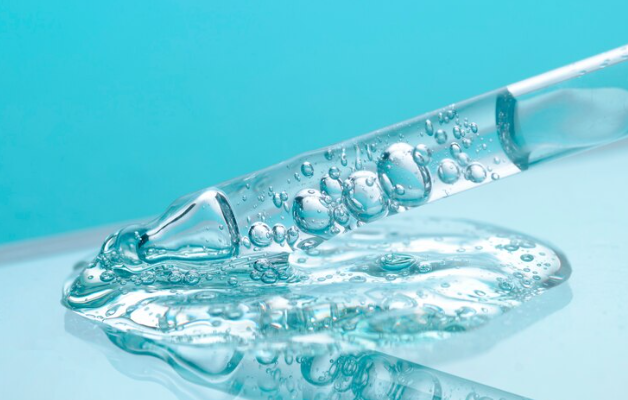Why Should You Use Hyaluronic Acid?

© Freepik
Have you heard about the wonders of hyaluronic acid for your skin? If not, you are missing out on a powerful ingredient that can transform your skincare routine.
With so many skincare products available, it is important to know the benefits of each ingredient to truly understand what your skin needs.
That is why we are here to help! Here is why you should start using hyaluronic acid.
What Is Hyaluronic Acid?
Hyaluronic acid (HA) is a naturally occurring glycosaminoglycan present in the body’s connective tissue. Glycosaminoglycans are long unbranched carbohydrates, or sugars, known as polysaccharides.
HA plays a crucial role in providing structure to the skin, giving it a plump and hydrated appearance. While collagen often gets attention, hyaluronic acid is essential for maintaining skin health and hydration.
What Do You Need to Know?
Active Ingredient: Hyaluronic acid (also known as hyaluronan or sodium hyaluronate)
Legal Status: Available over-the-counter (OTC) oral supplements and topical products. Intra-articular (within the joint) hyaluronic acid is classified as a class III medical device.
Suggested Dose:
- For thumb osteoarthritis: 5 milligrams (mg) for one cycle of three injections, administered once per week.
- For skin wrinkles: Studies have used a dose of 120 milligrams (mg) taken orally daily for 12 weeks.
Safety Considerations: While several clinical studies haven’t reported serious side effects of hyaluronic acid, caution is advised for individuals allergic to poultry or with cancer. Further research is necessary to determine the efficacy and safety of hyaluronic acid, particularly in pregnant individuals.

What Are the Benefits of Hyaluronic Acid?
These are some of the benefits that it can offer:
1. Hydration
Hyaluronic acid’s ability to bind up to 1000 times its weight in water is truly remarkable. This property makes it an excellent humectant, meaning it attracts and retains moisture on the skin’s surface. By holding onto water molecules, hyaluronic acid keeps the skin thoroughly hydrated, imparting a plump and supple appearance. Whether incorporated into skincare products or used as injectable fillers, hyaluronic acid works to replenish and maintain the skin’s moisture levels, combating dryness and dullness effectively.
2. Prevention of Transepidermal Water Loss (TEWL)
Transepidermal water loss, or TEWL, refers to the process of water evaporating from the skin’s surface. When TEWL occurs at high rates, it can lead to dehydration, dryness, and compromised skin barrier function. Hyaluronic acid plays a crucial role in preventing TEWL by forming a protective barrier that slows down the evaporation of water from the skin. By maintaining optimal moisture levels, hyaluronic acid helps keep the skin barrier intact, ensuring that it remains resilient and healthy.
3. Wound Healing
Beyond its hydrating properties, hyaluronic acid has also been recognized for its ability to facilitate wound healing. Studies have shown that hyaluronic acid contributes to the regeneration of damaged skin tissue, promoting faster healing and reducing the risk of scarring. Its natural presence in the extracellular matrix of the skin makes it an ideal candidate for enhancing the repair process. Whether applied topically to minor cuts and abrasions or used in medical settings to aid in wound closure, hyaluronic acid demonstrates impressive therapeutic potential in promoting skin recovery and rejuvenation.
What About Hair?
Hyaluronic acid is a common ingredient in hair products like oil, shampoo, conditioner, and hair spray. Its humectant properties aid in moisture retention, keeping hair hydrated and potentially revitalizing it. While further research is needed, using hyaluronic acid in hair products could lead to improved texture, reduced frizziness, and scalp benefits.
Are There Any Side Effects?
The recommendation is to keep the concentration of hyaluronic acid (HA) below 2 percent in skincare products. This is because HA with a very low molecular weight, such as 5 kDA, can penetrate the skin deeply, potentially carrying along with it other undesirable ingredients, chemicals, or bacteria. This could be problematic, especially for individuals with compromised skin. However, HA itself typically doesn’t cause allergic reactions since it’s a substance naturally produced by our bodies.

Cosmetic chemists have a good handle on the science of hyaluronic acid (HA) in skincare products, so it’s wise to trust their expertise and user reviews when selecting HA products. However, it’s important to note that not all HA is the same. Some varieties may have unintended side effects, and certain types of HA have been associated with inflammatory skin conditions like psoriasis when used in higher concentrations.
How to Incorporate It Into Your Diet
HA can be obtained from your daily diet, though its effects on the skin may not be as immediate as those of serums or creams. However, dietary sources are cost-effective and may offer longer-lasting benefits for maintaining and enhancing skin health without any side effects.
Bone broth is a significant dietary source of hyaluronic acid, found in the bone marrow of meat. Additionally, foods containing plant-based estrogen, known as phytoestrogen, can also be consumed to supplement hyaluronic acid intake. This includes:
- Fruits such as apples, grapes, plums, pears, and berries
- Vegetables such as sprouts, cabbage, spinach, and hops
- Sweet potatoes
- Beans
- Soybeans
- Grains
- Peanuts
- Chickpeas
- Garlic
- Onions
- Teas such as black tea and green tea
Can You Use It Everyday?
Hyaluronic acid can benefit skin, eyes, hair, and joints, with different forms for different treatments. For skin enhancement, daily use of over-the-counter serums is common.
Before starting daily supplements or injections, consult a doctor for guidance, as they are more specialized treatments requiring professional administration.

How Much Should You Take?
Hyaluronic acid supplementation via oral intake has been deemed safe at doses of up to 200 milligrams per day over 12 months. The dosage and form of HA vary depending on its purpose:
- Osteoarthritis: Injections of 0.5 cubic centimeters of 5 milligrams HA, administered weekly into the joint, are common.
- Skin wrinkles: Oral intake of 120 milligrams HA daily for 12 weeks is typical, though intradermal injection effectiveness remains unclear.
- Dry eyes: Clinical trials suggest using drops containing 0.15% or 0.3% HA, with dosages varying depending on severity.
Have you ever tried hyaluronic acid before? How did it go? What did you use it for?
Disclaimer: The information provided on this website is for general informational purposes only and is not intended as a substitute for professional advice, diagnosis, or treatment. Always seek the advice of your physician or other qualified health provider with any questions you may have regarding a medical condition.
You might also want to read: Can Castor Oil Really Provide Benefits?


